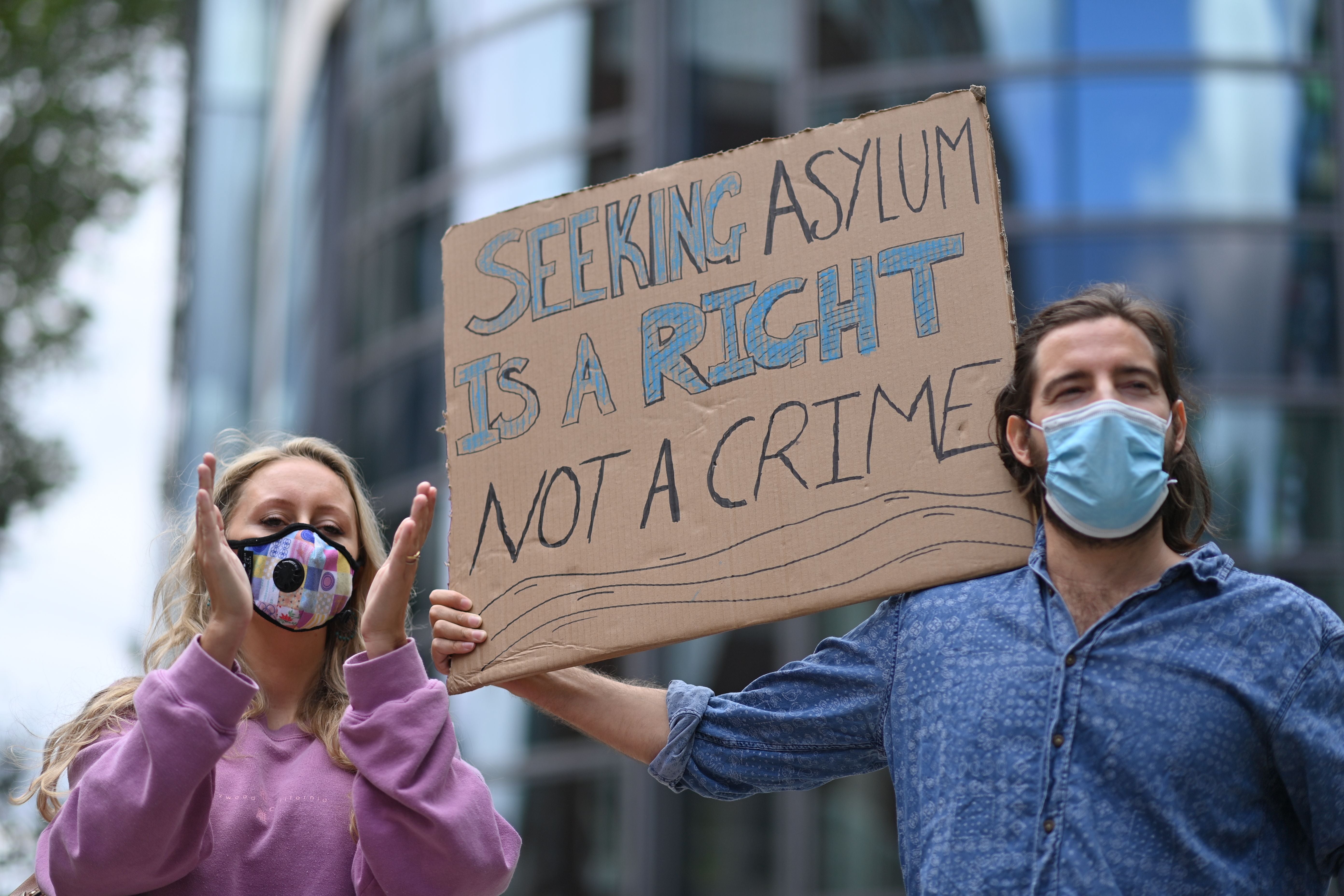Home Office’s rush to deport asylum seekers before Brexit was ‘inhumane’, watchdog finds
‘Unprecedented levels of self-harm and suicidal thoughts’ were recorded at the Brook House Immigration Removal Centre in late 2020

The Home Office’s rush to deport asylum seekers last year ahead of Brexit amounted to “inhumane treatment,” a watchdog has found.
In its annual report for 2020, the Independent Monitoring Board (IMB) for the Brook House Immigration Removal Centre (IRC) raised concerns around the impact of the government ramping up efforts to remove people arriving on small boats from the UK in the later months of 2020.
While the monitoring board found men detained in Brook House were “generally treated humanely,” it said that the “concentrated nature” of removal flights ahead of Brexit — and in the midst of a pandemic — “amounted to inhumane treatment of the whole detained population”.
One of the impacts of this treatment was “unprecedented levels of self-harm and suicidal thoughts and attempts,” the board added.
“While we consider that men detained in Brook House are generally treated humanely, the impact of the Home Office’s unusually compressed charter flight programme on an especially vulnerable population led to unprecedented levels of self-harm and suicidal thoughts and attempts in the last five months of 2020,” said Brook House IMB’s chair, Mary Molyneux, said in a statement.
“Our concerns were such that we wrote to the Home Office minister about them in October,” she added, noting that compressed flight programme ceased in December.
Speaking to The Independent, Ms Molyneux said the Home Office was “perfectly entitled to remove people on charters”. But she added: “The issue here was the way it was done. So compressed, so compact when it was very clear the systems for dealing with it were [under stress.]”
The Independent revealed in December the Home Office had spent millions of pounds of taxpayers’ money on deportations in its “rush” to remove asylum seekers before the end of the Brexit transition period.
Data obtained through the Freedom of Information Act showed at least £2.3m was spent on forcibly removing at least 225 people to European countries in July, August and September in 2020 - double the amount that was spent on deportation flights in the previous quarter, when 285 people were removed.
In the ramped-up effort, some charter flights only carried a few people onboard, inflating the cost.
The report also found “some systems did not adapt quickly enough to the needs of [a] vulnerable population” and detainees “were not adequately informed of what would happen to them on removal” to the EU.
“The whole system and the people, everything, really, at Brook House was under strain because of the really concentrated and compact nature of the charter flight programme,” Ms Molyneux added.
“There were two flights a week scheduled. They didn’t always happen, but you had the same build-up of anxieties and problems”.
The IMB also found a lack of sufficient access to healthcare services to help cope with “increased levels of fear and anxiety”.
It noted “serious delays” in the assessment of torture claims and said men were sharing accommodations with others who had self-harmed or attempted suicide with little support.
The independent board did find that “staff-detainee relationships” were “generally positive” at the removal centre during 2020, despite the challenges presented by the coronavirus pandemic.
However, it questioned whether many of the men held at the removal centre should have been there in the first place.
According to the IMB, at least 72 per cent of the men detained at Brook House for removal between August and December were later released, even in the midst of the UK’s ramped up removal efforts.
“This raises questions about why many were detained in the first place and why they were unnecessarily exposed to these detrimental conditions in particular, and the harmful effects of detention in general,” board members said.
Ms Molyneux told The Independent the IMB had found the same trend the year before and repeatedly flagged concerns over the unnecessary detention of migrants and asylum seekers.
The came come following calls for immigration detainees to be released due to concerns around the spread of coronavirus in closed facilities.
The Independent has contacted the Home Office for comment.
Join our commenting forum
Join thought-provoking conversations, follow other Independent readers and see their replies
Comments
Bookmark popover
Removed from bookmarks